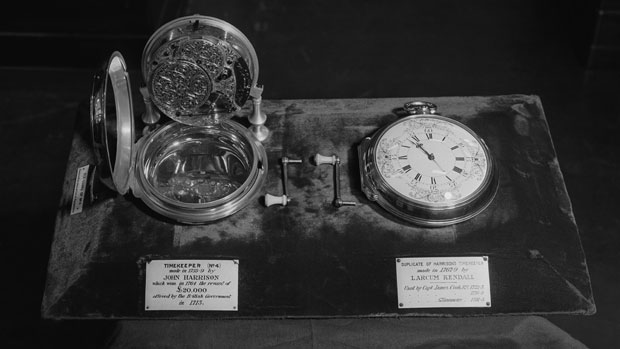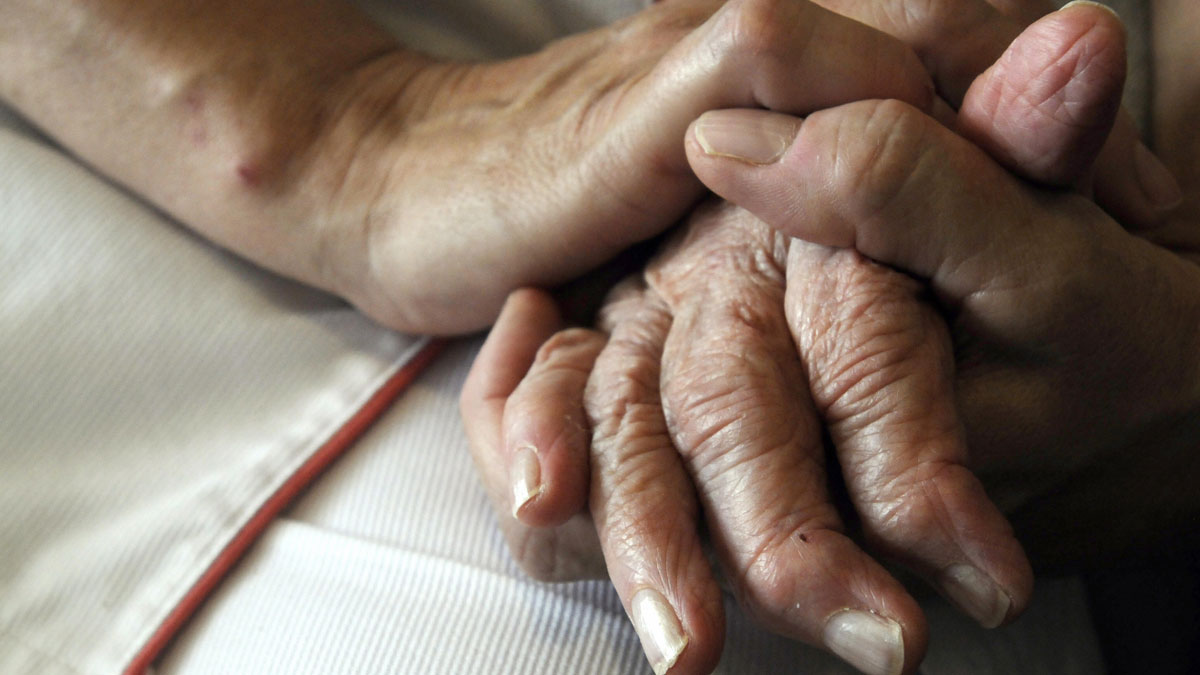£10m Longitude Prize: will it solve world's greatest challenges?
New Longitude Prize aims to beat dementia, paralysis, climate change or global food shortages

A free daily email with the biggest news stories of the day – and the best features from TheWeek.com
You are now subscribed
Your newsletter sign-up was successful
The Longitude Prize will award £10m to the first person who solves one of the world's great problems, be it improved access to food and water, help for dementia sufferers, improved care for paralysed people, cleaner travel, or a replacement for antibiotics.
The idea is based on the 1714 Longitude Prize, originally offered by the British government to try to solve the problem of how to determine a ship's longitude at sea. Most of the £20,000 was won by John Harrison, a clockmaker from Yorkshire with little formal education, whose radical chronometer solved the navigational conundrum and is thought to have saved many thousands of lives.
The new prize is being revived by the UK's innovation foundation, Nesta, with funding from the Technology Strategy Board. A special edition of BBC's Horizon programme will outline the competition in detail on Thursday – and it will then be up to the British public to decide which challenge it should address.
The Week
Escape your echo chamber. Get the facts behind the news, plus analysis from multiple perspectives.

Sign up for The Week's Free Newsletters
From our morning news briefing to a weekly Good News Newsletter, get the best of The Week delivered directly to your inbox.
From our morning news briefing to a weekly Good News Newsletter, get the best of The Week delivered directly to your inbox.
So which is most likely to win the public vote? And once the prize officially launches, how far are we from solving each problem?
FOOD
The problem:
How can we ensure everyone has nutritious, sustainable food?
A free daily email with the biggest news stories of the day – and the best features from TheWeek.com
The solution?
Robert Rhinehart, an electrical engineer who is working to find a new form of sustenance, has developed a "food replacement" product called Soylent. According to The Independent, the mixture is a powder with a "neutral taste" that can allegedly supply all the body's nutritional needs. The product is made from maltodextrin, rice protein, oat flour, canola oil, fish oil, and raw chemical powders. The 25-year-old San Francisco-based entrepreneur claims to have been living off Soylent for over a year. Critics say that it may be an interesting idea, but it has yet to be proven that it can be produced more cheaply than food. Others argue that it will not be able to meet people's nutritional needs and that its inventors will struggle to convince people to adopt it.
PARALYSIS
The problem:
How can we restore movement to those with paralysis?
The solution?
In December last year a soldier who lost his right arm in Afghanistan became the first person in the UK to be fitted with a bionic arm he can control with his thoughts. Surgeons at the Medical University of Vienna took nerve endings from Corporal Andrew Garthwaite's shoulder, which would have run down to his hand, and rewired them into his chest muscles. He has had to learn to use his hand again, with electrodes sending signals into the bionic arm so that he can control the prosthesis. Could a similar technology be applied to people suffering from paralysis? The Longitude Prize website anticipates that the winning entry in this category would need to combine "neural interfaces, assistive technology and regenerative medicine".
FLIGHT
The problem:
How can we fly without damaging the environment?
The solution?
Last month, two Swiss pilots announced a plan to become the first people to circumnavigate the globe in an aeroplane powered only by the sun. The experimental plane, named the Solar Impulse II, aims to launch this month or next, and will take three or four months to complete its lap of the earth. The pilots believe that the aeroplane could contribute to the future of flight and may also help convince people to adopt solar power in their homes and businesses.
ANTIBIOTICS
The problem:
How can we prevent the rise of resistance to antibiotics?
The solution?
The drug industry hasn't developed a "new class of antibiotics" since the late 1980s and there are very few new antibiotics "in the pipeline", says chief medical officer for England, Dame Sally Davies. The problem now, she says, is that making antibiotics is "not viewed as profitable". Davies says that if any breakthroughs in antibiotics are to be made, the pharmaceutical industry needs to be "incentivised" to create new drugs.
If antibiotics is chosen, the challenge for Longitude Prize entrants would not be to develop a new class of drugs, but rather "create a cheap, accurate, rapid, and easy-to-use test for bacterial infections". Last year, a research group from Copenhagen called Frugal Digital developed a device called Clock Sense – a monitor converted from an old alarm clock which can measure vital signs including temperature, blood pressure and blood sugar CNN reports. A frugal, "hackable" invention such as this, designed to be made cheaply and distributed broadly, could provide the template for a winning idea.
WATER
The problem:
How can we ensure everyone can have access to safe and clean water?
The solution?
One of the leading solutions to the problem of global water shortages is desalination, the process that removes salt and other minerals from salty (brackish) or seawater to produce freshwater for drinking and agriculture. While desalination plants exist in many parts of the world, most still use an enormous amount of energy, which, at present makes them unsustainable. One front-running solution is to power desalination facilities with solar energy. Greenbiz points to the work of one company, WaterFX, which already uses solar power to filter salty water "and is about 30 times more efficient than similar facilities elsewhere".
DEMENTIA
The problem:
How can we help people with dementia live independently for longer?
The solution?
The number of dementia sufferers around the world is expected to treble to 135 million by 2050 and concern is growing that some countries will not be able to cope. Experts have previously [8]described the disease as "the next global health time bomb". The UK is aiming to double its spend from the 2015 target of £66m, but it still lags far behind funding given to other illnesses. For example, in the UK, about £590m is spent on cancer research – approximately eight times the figure for dementia. Some fear that a cure for dementia is still a long way away; in the meantime the Longitude Prize hopes to revolutionise care for people with dementia, allowing them to live more independent lives.
-
 Political cartoons for February 18
Political cartoons for February 18Cartoons Wednesday’s political cartoons include the DOW, human replacement, and more
-
 The best music tours to book in 2026
The best music tours to book in 2026The Week Recommends Must-see live shows to catch this year from Lily Allen to Florence + The Machine
-
 Gisèle Pelicot’s ‘extraordinarily courageous’ memoir is a ‘compelling’ read
Gisèle Pelicot’s ‘extraordinarily courageous’ memoir is a ‘compelling’ readIn the Spotlight A Hymn to Life is a ‘riveting’ account of Pelicot’s ordeal and a ‘rousing feminist manifesto’
